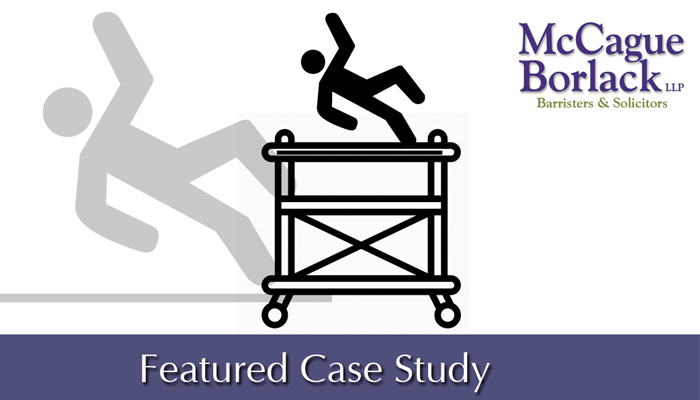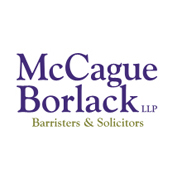Background Facts
In September 2015, the Plaintiff, David McConnell, was installing drywall in the home of the Defendants, Michelle and Gary Fraser, when he allegedly fell from a scaffold and was injured.
In the initial Statement of Claim, the Plaintiff sued the Defendants under the Occupiers' Liability Act.3 The Plaintiff claimed the Defendants failed to properly maintain safe working conditions and failed to provide safe equipment; however, the Plaintiff did not allege in the initial Statement of Claim that the Defendant, Mr. Fraser, bumped into the scaffolding, therein causing the fall.
During his Examination for Discovery, the Plaintiff testified that he was aware that the scaffolding was bumped on the date of loss, September 29, 2015, and that by deductive reasoning the only person who could have potentially bumped the scaffolding before his fall was the Defendant, Mr. Fraser.
However, the Plaintiff alleged that he only “discovered” the foregoing facts after the Defendant's examination.
Overview of the Law
The Court asserted that despite the broad approach outlined in Rule 26.01 of the Rules of Civil Procedure4 regarding amending pleadings, the jurisprudence is clear that there is no absolute right to amend.5
Issue One: The proposed amendments raised a new cause of action
First, the Court considered if the Plaintiff's proposed amendment raised a new cause of action. A new cause of action will depend on “whether substantially all of the material facts giving rise to the 'new cause of action' have previously been pleaded or whether new facts are sought to be added that are relied upon to support a new cause of action”.6 Therefore, a new cause of action will be established when new facts are relied upon to establish new allegations.
...there is no absolute right to amend. |
The Court found that the proposed amendments to the Statement of Claim relied on new facts not previously pled – specifically, the allegations that the Defendant caused the accident by bumping the scaffolding.
According to Justice Boswell, the new allegations were no longer grounded in the occupier's duty of care, but rather grounded in the general duty of care that one person owes to another according to the common law. To paraphrase Justice Boswell, the initial allegations were grounded in acts of omissions, while the proposed amendments were acts of commission.7
Given the foregoing, the Court concluded that the proposed amendments advanced a new cause of action.
Issue Two: The new cause of action was statute-barred by the Limitations Act.
Second, the Court considered whether the new cause of action was brought before the expiry of the limitation period. In Ontario, the Limitations Act, 2002 establishes that a claim must be commenced within two years from the date on which the claim is “discovered”. Therefore, the claim will not be viable where the Plaintiff failed to commence the action within two years of discoverability.
Based on the Plaintiff's evidence at his examination, he was aware that the scaffolding was bumped on the date of loss, September 29, 2015, and that by deductive reasoning the only person who could have potentially bumped the scaffolding before his fall was the Defendant, Mr. Fraser.
Therefore, the Court rejected the Plaintiff's submission that he only discovered the bump during the Defendant's Examination for Discovery. Instead, it was the Court's view that the Plaintiff knew on the date of loss “that the scaffolding had been bumped and it was apparent that the only person who could have done the bumping was Mr. Fraser”.8
...the limitation period for the new cause of action expired... |
Therefore, the Court concluded that the limitation period for the new cause of action expired two years from the date of loss and thus the proposed amendments were statute-barred by the provisions of Limitations Act, 2002.
Conclusion and Takeaway
The Court ruled that the Plaintiff had alleged a new cause of action in their proposed Amended Statement of Claim that was no longer viable, as the limitation period had expired. As such, the Court did not allow the Plaintiff to amend his Statement of Claim and the motion was dismissed.
From the defence perspective, the decision highlights the importance of reviewing the pleadings to ascertain if a plaintiff is advancing a claim which is not pled in the Statement of Claim. If this occurs, the defence may be able to rely on a limitation defence for these unpled allegations, even if the initial claim was brought before the expiry of the limitation period.
From the subrogation perspective, the decision highlights the importance of completing a proper investigation as early as possible to advance and support all potentially viable allegations and causes of action in the initial pleadings.
*After filing written submissions on the issue of costs, our party was awarded just under $4,000 - read the full Costs Endorsement.9
- McConnell v. Fraser, 2020 ONSC 6649 [McConnell]
- Limitations Act, 2002, S.O. 2002, c. 24, Sch B.
- Occupiers' Liability Act, R.S.O. 1990, c. O.2.
- RRO 1990, Reg 194
- Marks v. Ottawa (City), 2011 ONCA 248, at para. 19 and, Dugal v. Manulife Financial Corporation, 2011 ONSC 387 at para. 5 and, Carom v. Bre-X Minerals Ltd. (1998), 41 O.R. (3d) 780 (S.C.J.) at para. 10.
- Ascent Incorporated v. Fox 40 International Inc., 2009 CanLII 36994 (S.C.J.) at para. 3.
- McConnell, supra, note 1 at para 33.
- McConnell, supra, note 1 at para 40.
- McConnell v. Fraser, 2020 ONSC 7262


